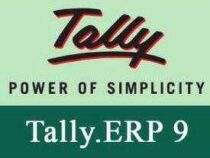Description
Course Name: Certificate in Commodity Trader
Course Id: CICT/Q0101.
Eligibility: 10+2 (Higher Secondary) or equivalent is required.
Objective: The Certificate in Commodity Trader course is designed for aspiring traders, finance professionals, and entrepreneurs who wish to enter the field of commodity trading, including agricultural goods, metals, energy, and bullion. It provides a comprehensive understanding of how commodity markets function and how to trade responsibly and profitably.
Duration: Three Months.






Debit/Credit Card, Wallet, Paytm, Net Banking, UPI, or Google Pay.



• A soft copy (scanned) of your certificate via email within 7 days of examination.
• A hard copy (original with official seal and signature) sent to your address within 45 day of declaration of result.

Online Examination Detail:
Duration- 60 minutes.
No. of Questions- 30. (Multiple Choice Questions).
Maximum Marks- 100, Passing Marks- 40%.
There is no negative marking in this module.
| Marking System: | ||||||
| S.No. | No. of Questions | Marks Each Question | Total Marks | |||
| 1 | 10 | 5 | 50 | |||
| 2 | 5 | 4 | 20 | |||
| 3 | 5 | 3 | 15 | |||
| 4 | 5 | 2 | 10 | |||
| 5 | 5 | 1 | 5 | |||
| 30 | 100 | |||||
| How Students will be Graded: | ||||||
| S.No. | Marks | Grade | ||||
| 1 | 91-100 | O (Outstanding) | ||||
| 2 | 81-90 | A+ (Excellent) | ||||
| 3 | 71-80 | A (Very Good) | ||||
| 4 | 61-70 | B (Good) | ||||
| 5 | 51-60 | C (Average) | ||||
| 6 | 40-50 | P (Pass) | ||||
| 7 | 0-40 | F (Fail) | ||||







Syllabus:
Module 1: Introduction to Commodity Markets: Definition and scope of commodity trading, History and evolution of commodity markets, Structure of global and Indian commodity markets, Key players in the commodity ecosystem, Types of commodities (agri, metals, energy), Spot vs futures market, Role of SEBI and MCX/NCDEX, Benefits and risks of commodity trading, Understanding market cycles, Regulatory framework and compliance.
Module 2: Commodity Exchanges and Instruments: Functions of commodity exchanges, Major global exchanges (CME, ICE, LME), Major Indian exchanges (MCX, NCDEX, ICEX), Types of commodity derivatives, Futures and options trading, Contract specifications and lot sizes, Margin requirements and SPAN, Clearing and settlement process, Daily price limits and circuit filters, Regulatory bodies and trading rules.
Module 3: Trading Strategies and Analysis: Fundamental analysis of commodities, Supply and demand factors, Seasonal patterns in agri commodities, Technical analysis (charts, trends, patterns), Indicators (MACD, RSI, moving averages), Hedging and arbitrage strategies, Spread trading and calendar spreads, Position trading vs intraday trading, Backtesting trading strategies, Risk-reward ratio and money management.
Module 4: Commodity Pricing and Risk Management: Price discovery mechanisms, Factors influencing commodity prices, Volatility and its measurement, Risk types in commodity trading, Hedging with futures and options, Stop loss and risk control measures, Portfolio diversification using commodities, Use of derivatives for risk management, Value at Risk (VaR) basics, Insurance and warehousing in risk management.
Module 5: Trading Platforms and Practical Execution: Overview of online trading platforms, Placing buy/sell orders, Market, limit and stop orders, Order book and trade book analysis, Live commodity market tracking, Using trading simulators, Trading software walkthrough (MCX/NSE), Settlement cycles and delivery process, Contract expiry and rollover, Common mistakes and compliance issues.
Module 6: Legal, Taxation and Ethics in Commodity Trading: SEBI regulations for commodity traders, Taxation of profits from commodity trading, GST and commodity transactions, Brokerage and transaction charges, Insider trading and market manipulation laws, Record-keeping and audit trails, Ethics in trading practices, Investor protection mechanisms, Grievance redressal systems, Professional conduct and licensing (if applicable).
✅ Career Opportunities After Certificate in Commodity Trader
🔹 1. Commodity Trader (Junior/Senior)
-
Workplace: Trading desks at brokerage firms or trading houses
-
Role: Execute commodity trades, analyze price trends, manage risk
-
💰 Salary Range: ₹25,000 – ₹75,000/month + performance bonuses
🔹 2. Commodity Market Analyst
-
Workplace: Research firms, investment houses, news agencies
-
Role: Study trends, prepare reports, give trading recommendations
-
💰 Salary Range: ₹30,000 – ₹65,000/month
🔹 3. Broker / Sub-Broker – Commodity Markets
-
Workplace: Registered with MCX/NCDEX through brokerage firms
-
Role: Facilitate trades for clients, earn brokerage/commission
-
💰 Earnings: ₹20,000 – ₹1,00,000+/month (performance-based)
🔹 4. Risk Management Executive – Commodities
-
Workplace: Export-import firms, large manufacturers, and agri-businesses
-
Role: Hedge against price volatility, manage exposure to risk
-
💰 Salary Range: ₹35,000 – ₹80,000/month
🔹 5. Freelance Commodity Trader
-
Workplace: Trade independently via online brokerage accounts (e.g., Zerodha, Upstox)
-
Role: Analyze charts, trade futures/options in agri/metal/oil/gold markets
-
💰 Earnings: ₹25,000 – ₹2,00,000+/month (profit-dependent)
📈 Income Overview in India
| Role | Monthly Income Range |
|---|---|
| Commodity Trader | ₹25,000 – ₹75,000 |
| Commodity Analyst | ₹30,000 – ₹65,000 |
| Broker/Sub-Broker (Commission) | ₹20,000 – ₹1,00,000+ |
| Risk Management Executive | ₹35,000 – ₹80,000 |
| Freelance Trader (Online) | ₹25,000 – ₹2,00,000+ |











Reviews
There are no reviews yet.